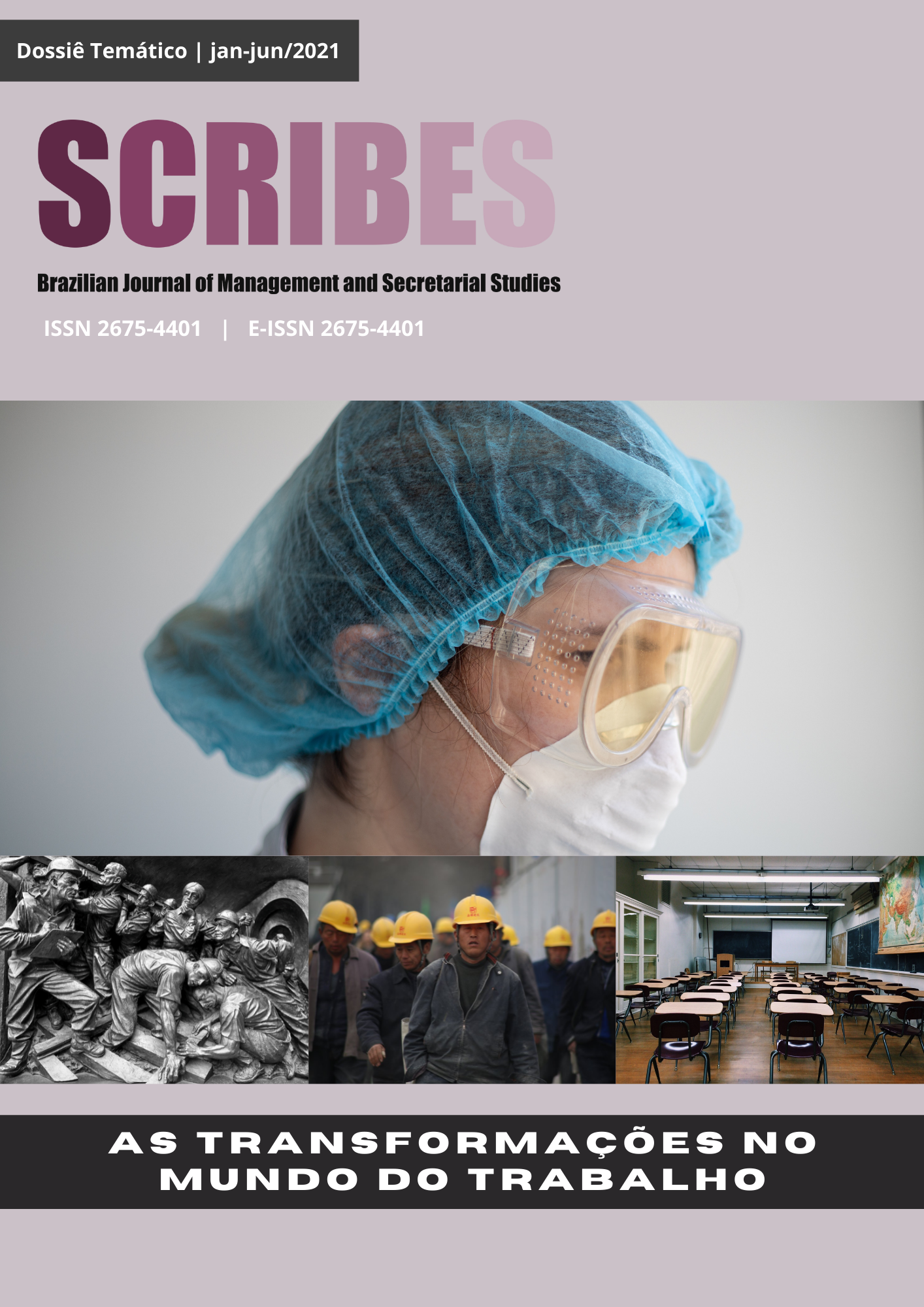Psychoanalytic Analysis of Lacanian Discourse
Epistemological, Theoretical and Methodological Foundations
DOI:
https://doi.org/10.33228/scribes.2021.v2.11277Abstract
The objective, through a theoretical corpus, is to propose psychoanalytic discourse analysis as a qualitative research resource within the applied social sciences. It is necessary to rescue Hegel, Saussure, Lévi-Strauss, Freud, Politzer, Popper, Althusser, Foucault and Pêcheux to think about the concepts that Lacan considers for a discursive analysis. The psychoanalytic analysis of Lacan's discourse is therefore a proposal for conduct, and not merely a theoretical-methodological resource. The efforts in the construction of a work with this qualitative approach are: the vast Lacanian repertoire, the bridges built or under construction of the interfaces between epistemology and phenomenon in the area of ??applied social sciences (challenge of interdisciplinarity) and the maturity of psychoanalysis within administration and of researchers in the face of psychoanalysis.
Downloads
Downloads
Published
How to Cite
Issue
Section
License
Published authors agree on the following items:
a. Authors keep copyright ownership whilst ceding to SCRIBES the right to a first publication. The material is also simultaneously licensed under the Creative Commons Attribution-NonCommercial 3.0 Unported Licence, which allows its publication with mutual recognition of authorship and initial publication through SCRIBES.
b. Authors are authorised to engage in third-party contracts independently, as long as they are pursuing a non-exclusive publication of the article originally published in this journal, such as having it appended to an institutional repository or included in a book as a chapter. Authorship and original publication by SCRIBES must still be acknowledged.
c. Authors have permission to and are encouraged to publish their research online, such as in institutional repositories or in their own personal web pages. They are allowed to do that before or after the editorial process, once it inspires any opportunistic alterations to be considered during the aforementioned process, and increase the content’s impact and value as a quotable work (read more on The Effect of Free Access).




